

Environmental Science and Policy
Celebrate 50 years of Environmental Science and Policy at UC Davis. Join us March 12th for an exclusive event showcasing everything DESP. Browse the 50th anniversary timeline to learn of all we've accomplished in five decades.
UC Davis College of Agricultural and Environmental Sciences invites you to celebrate the 50th anniversary celebration of the Department of Environmental Science and Policy (ESP) with two special events and a look at what we’ve done these past 50 years.
All events postponed until further notice
 Years Anniversary Timeline
Years Anniversary Timeline
Join us as we celebrate 50 years of Environmental Science and Policy at UC Davis. Browse the timeline below to learn more about the important work we’ve accomplished. Use the filters to change focus.
Timeline Filters
1970

Division of Environmental Studies Established
Division created two undergraduate majors, Environmental Planning and Management, and Environmental Policy Analysis and Planning.
With 16 faculty, research was equally split between physical, environmental, and social sciences.
1971

First courses offered
Some of the initial courses that still exist today and include: Introduction to Environmental Studies/Current Issues in the Environment, General Ecology, Human Ecology/Ecology, Nature and Society, Public Mechanisms for Controlling Land Use/Land Use and Growth Controls, Environmental Law, and Oceanography/The Oceans.
1972

Environmental Planning and Management major enrolls six students
1972

Limnology course offered
1973

Physical and Chemical Oceanography, Geological Oceanography, and Biological Oceanography courses are offered
1982

Division continues to gain popularity with 78 students enrolled in Environmental Policy Analysis and Planning and 73 in Environmental Planning and Management
1982

Students create Ecology of Development in the Humid Tropics course
Student organization offers a class on tropical ecology, advised by Charles Goldman, which provides an interdisciplinary look at development in the tropics while integrating biological, socio-economic and political questions
1986

The Division of Environmental Studies joins the College of Agricultural and Environmental Sciences.
1990

Environmental Biology and Management major is created, which gradually replaces Environmental Planning and Management
1990

Susan P. Harrison and Eliska Rejmankova, both ecologists, appointed as first female faculty members
1991

Geoffrey Wandesforde-Smith wins 1990-1991 Magnar Ronning Award for Outstanding Teaching for the College of Letters and Science

1992

Information Center for the Environment is co-founded by Jim Quinn and Mike McCoy
1992

Undergraduate majors gain in popularity
With 339 undergraduates enrolled, including: 144 in Environmental Biology and Management, 29 in Environmental Planning and Management, 165 in Environmental Policy Analysis and Planning.
1997

The Division officially becomes The Department of Environmental Science and Policy (DESP).
1997

United States presidential visit
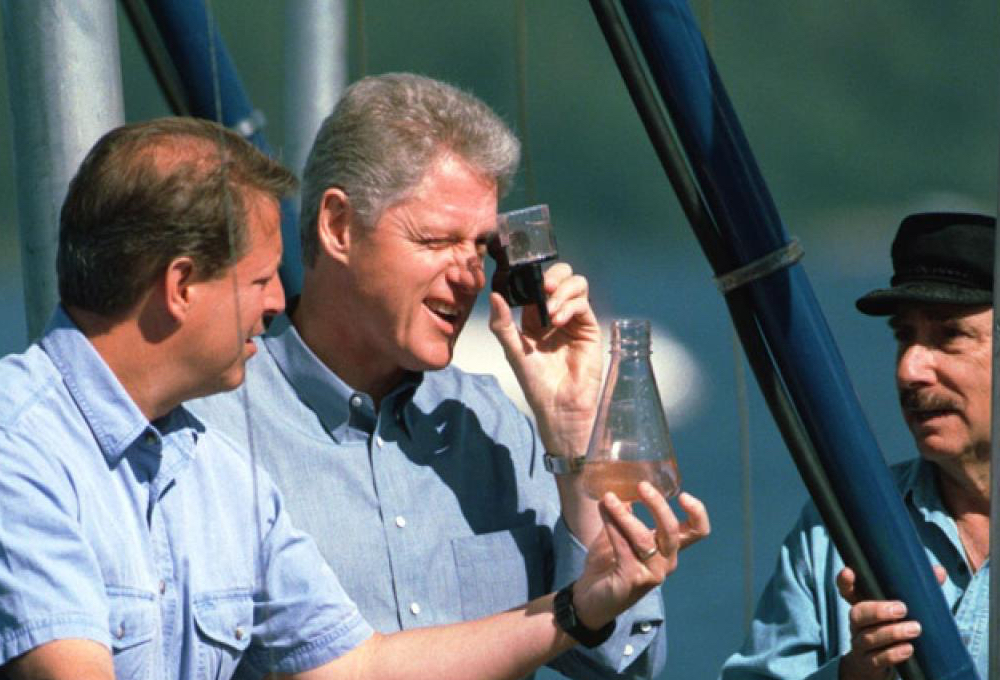
UC Davis Tahoe Research Center hosts President Bill Clinton and Vice President Al Gore to demonstrate the study of Lake Tahoe. Clinton and Gore were in town to lead a summit on solutions to save Lake Tahoe.
Learn More1997

John Muir Institute of the Environment was established
Learn More1998

Charles Goldman, Distinguished Professor Emeritus, receives Albert Einstein World Award of Science
The Albert Einstein World Award of Science is bestowed annually by an international council to recognize a scientist who has accomplished scientific and technological achievements while advancing scientific understanding and benefitting humanity.
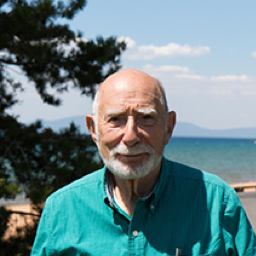
1998

Los Angeles Times highlights Ted Grosholz’s research on the European green crab and its impact on native California coastal systems
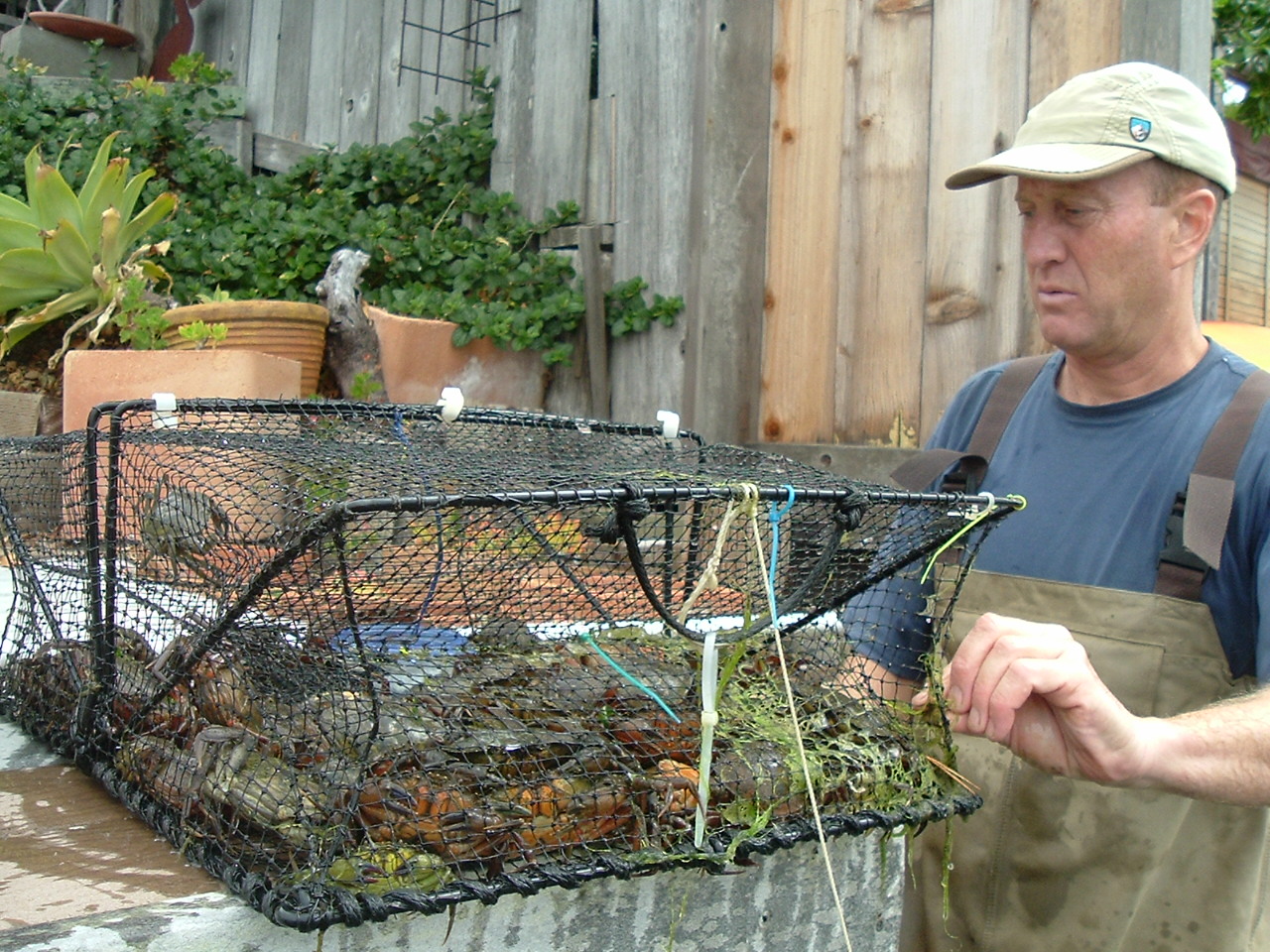
The European green crab–a notorious invader of coasts around the world–can wreak ecological havoc, eating its way through marshes, harbors and bays where rare native birds and fish feed.
Learn More2001

Alan Hastings receives a $3.8M NSF grant to study ecosystem processes of invasive Atlantic cordgrass
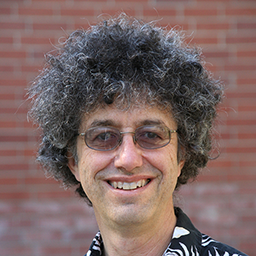
2001

Information Center for the Environment receives funding to become the California/Southwest Center for the National Biological Information Infrastructure

2001

Eliska Rejmankova’s Wetland Ecology Lab receives funding from NIH/NSF Program “Ecology of Infectious Diseases”
The funding is for the project “Environmental Determinants of Malaria in Belize”. The project resulted in the establishment of the Belize Vector and Ecology Center, BVEC, which has been providing a research platform for a wide variety of ecological and public health concerns.
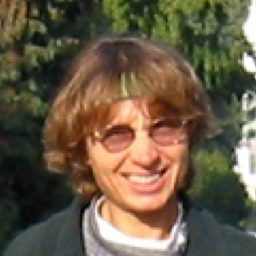
2001

Pete Richerson appointed to National Academy of Sciences/National Research Council Commission on Behavior and Social Science and Education’s Committee on the Human Dimensions of Global Change
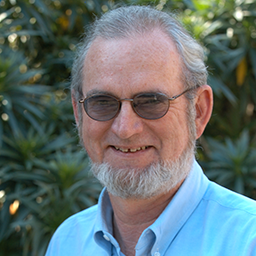
2001

Former students and associates establish scholarship to honor Dolores M. Dumont
Dumont was a Department of Environmental Science and Policy staff advisor for more than 30 years.
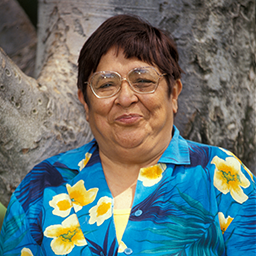
2002

662 students enroll in Department of Environmental Science and Policy courses
With 74 students majoring in Environmental Biology and Management and 79 students majoring in Environmental Policy Analysis and Planning.
2004

John Largier leads development of the Bodega Ocean Observing Node (BOON) as focal node in regional/national ocean observing systems, serving regional organizations and establishing Bodega Marine Laboratory/UC Davis as the oceanography center in northern California.
Learn More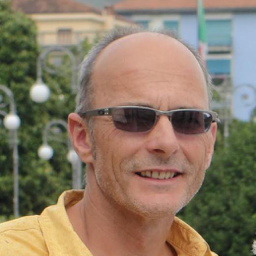
2004

October 29, California State Legislature formally acknowledges the Information Center for the Environment in a resolution for analysis of California resources and development
2004

Joan Ogden, professor emerita, serves as mentor for Humphrey Fellow
The Hubert H. Humphrey Fellowship Program brings accomplished mid-career professionals with a commitment to public service, from countries with developing and emerging economies, to the United States for one year of non-degree study and practical professional development.
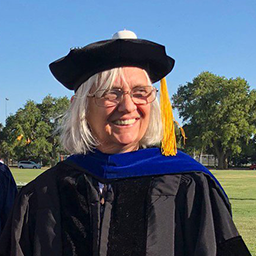
2005

Andy Sih elected World Innovation Foundation Fellow
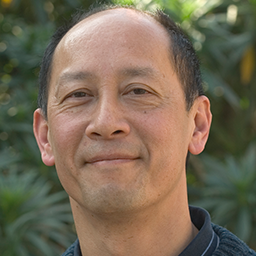
2005

Alan Hastings elected to American Academy of Arts and Sciences
The American Academy of Arts and Sciences is one of the oldest learned societies in the United States. Founded in 1780, the academy is dedicated to honoring excellence and leadership, working across disciplines and divides, and advancing the common good.

2005

UC Davis and Sierra Nevada College at Lake Tahoe build new Lake Tahoe Research and Education Facility
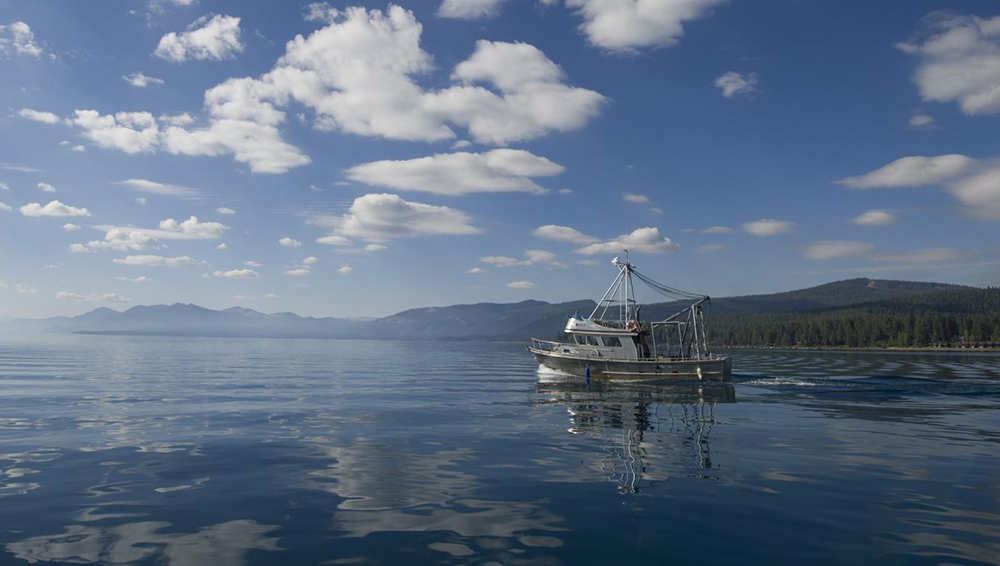
The UC Davis Tahoe Environmental Research Center is dedicated to interdisciplinary research and education to advance the knowledge of aquatic and terrestrial ecosystems and their interactions within natural and developed Earth systems, and to communicate science-informed solutions worldwide.
Learn More2005

UC Davis and Barrick Gold Corporation establish McLaughlin Reserve
The University of California Natural Reserve System is the largest and most diverse network of university field stations in the world. Five reserves are administered by the Davis campus including: Bodega Marine, Jepson Prairie, Donald and Sylvia McLaughlin, Quail Ridge, and Stebbins Cold Canyon.
Learn More2006

John Largier establishes new course in Coastal Oceanography as part of new undergraduate summer curriculum at Bodega Marine Laboratory.

2006

Kim Mahoney wins Walker Award for Outstanding Undergraduate Staff Advisor
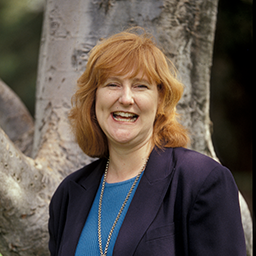
2006

Alan Hastings receives Robert H. MacArthur Award from Ecological Society of America
The Robert H. MacArthur Award is given biannually to an established ecologist in mid-career for meritorious contributions to ecology, in the expectation of continued outstanding ecological research.
Learn More
2007

John Largier becomes President of the California Estuarine Research Society (CAERS). Largier co-founded CAERS in 2003.
Learn More
2007

Governor Schwarzenegger names Daniel Sperling to California Air Resources Board
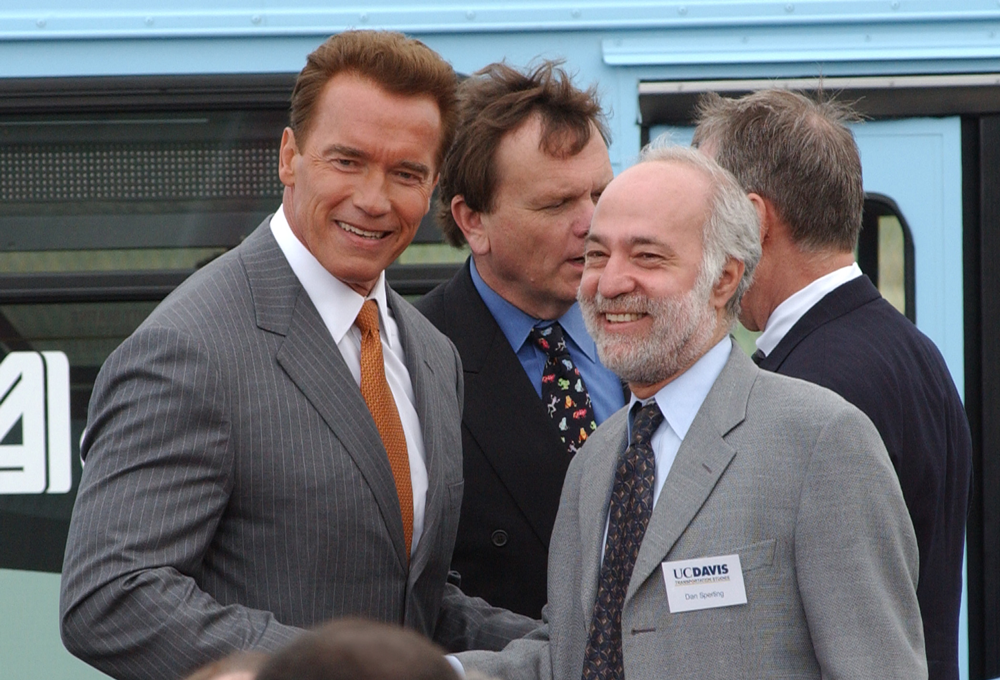
The governor’s administration also named Sperling as co-leader for a team of UC researchers assigned to drafting a new state policy to reduce greenhouse gas emissions from cars and trucks.
Learn More2007

Tom Tomich joins Department of Environmental Science and Policy and serves as founding director of the Agricultural Sustainability Institute and the statewide Sustainable Agriculture Research and Education Program
Tomich is also the inaugural holder of the W.K. Kellogg Endowed Chair in Sustainable Food Systems.
Learn More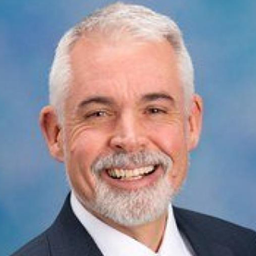
2007

Alan Hastings awarded Faculty Research Lectureship by the Academic Senate which is the highest senate honor for scholarly research.
The Faculty Research Lectureship is the highest senate honor for scholarly research. Hastings, a theoretical ecologist, explores the dynamics of how earthly populations move and change in a wide variety of real-world environments, and is one of the most prolific experts in his field.
Learn More
2007

Daniel Sperling wins a “piece” of a Nobel Peace Prize for his contribution to the UN IPCC report
The UN IPCC Report: “Climate Change 2007: The Fourth IPCC Assessment Report”
Learn More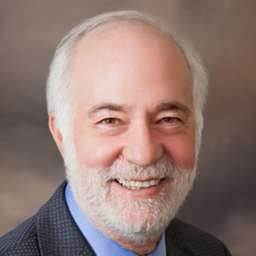
2009

Charles Goldman named chairman of the board of Tahoe Baikal Institute
The Tahoe Baikal Institute focuses on developing environmental leaders from the US, Russia, and other nations in the areas of scientific research, education, business and governmental policy. Its summer exchange program, established in 1990, has seen about 300 participants, mostly post graduate degree candidates and upper division students.
Learn More2009

Daniel Sperling is interviewed on The Daily Show with John Stewart to discuss the role of government policy in advancing fuel-efficient cars
Learn More
2009

Mark Lubell authors report that helps UC Davis receive a score of 30 out of 50 on the study’s “sustainability index”
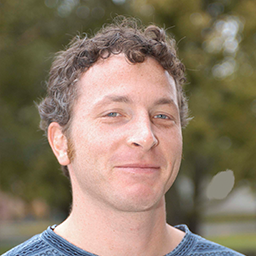
2009

Ecologist Fraser Shilling conducts study which discovers widespread impact of eating mercury-tainted fish
It was estimated that 100,000 people from his study were impacted from eating mercury-tainted fish due to abandoned mercury mines throughout central California’s coastal mountains. Mercury levels were higher than what was deemed safe by the US EPA.
Learn More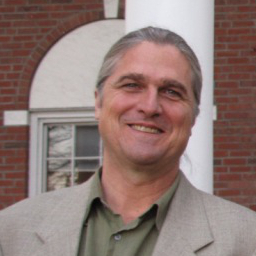
2009

Alan Hasting's research on the predictability, or lack thereof, in biological invasions is featured in The New York Times
Learn More
2010

James Sanchirico receives Quality of Research Discovery Award for “The Economics of Spatial-Dynamic Processes: Applications to Renewable Resources”, Agricultural & Applied Economics Assoc., 2010
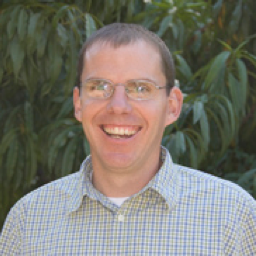
2010

Daniel Sperling receives Heinz Award for research and policy contributions
Learn More
2012

Ted Grosholz, an expert on invasive species, including California green crab and Spartina cordgrass, works on conserving biodiversity in California estuaries
 Learn More
Learn More
2012

1481 students enroll in Department of Environmental Science and Policy courses
Which include 195 students in Environmental Policy Analysis and Planning and the final 4 students in the Environmental Biology and Management major
2012

James Sanchirico receives Rosenstiel Award in Oceanographic Science for outstanding achievement and distinction in marine policy and economics, 38th recipient.

2013

Susan Harrison elected as a Fellow and Marissa Baskett elected as an Early Career Fellow of the Ecological Society of America
The Ecological Society of America is the world’s largest community of professional ecologists and the trusted source of ecological knowledge.
Learn More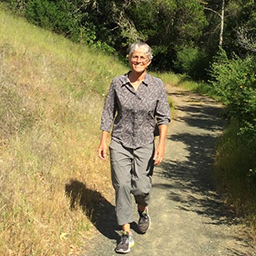
2013

Marissa Baskett elected Ecological Society of America Early Career Fellow
Marissa Baskett is an associate professor in ESP.
The Ecological Society of America is the world’s largest community of professional ecologists and the trusted source of ecological knowledge.
Learn More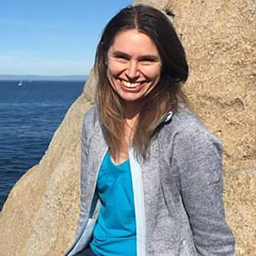
2013

Daniel Sperling, director of the UC Davis Institute of Transportation Studies, is one of two recipients of the Blue Planet Prize
The award was given to Sperling to recognize his role as a “pioneer in opening up new fields of study to create more efficient, low-carbon, and environmentally beneficial transportation systems.”
Learn More
2014

Professor Emeritus Howard Cornell, recognized as Thompson Reuters Highly Cited Researcher
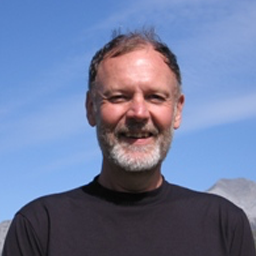
2014

James Sanchirico receives distinguished Scholarly Public Service Award for outstanding public service contributions, UC Davis Academic Senate.
Learn More
2014

Susan Harrison elected Fellow of the California Academy of Sciences

2014

John Largier joins Congressmember Jarred Huffman on KQED Forum addressing ocean acidification.
Learn More
2015

Limnologist Steven Sadro joins the Department
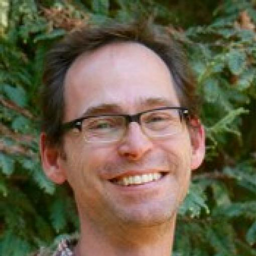
2015

Alan Hastings elected a member of the National Academy of Sciences
Learn More
2015

Gwen Arnold receives John Kincaid Award for Best Article Published in Publius
The article was entitled: “When Cooperative Federalism Isn’t: How U.S. Federal Interagency Contradictions Impede Effective Wetland Management”
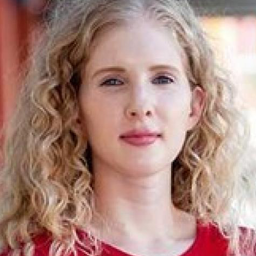
2016

Howard Cornell elected as a Fellow of the Ecological Society of America
Learn More
2017

Marissa Baskett elected UC Davis Chancellor's Fellow
Marissa Baskett was elected for her stellar work at the intersection of ecology and evolution using mathematical models to address issues related to fisheries management and climate adaptation.
Learn More
2017

The first cohort of students arrive for the new Master of Science in Environmental Policy and Management program.
ESP faculty are key to the leadership of the new program: Mark Schwartz (program proposal lead), Michael Springborn (inaugural chair, 2017-2020), Fran Moore (Executive Committee) and Mark Lubell (current chair, 2020).
2017

Steven Sadro develops and starts teaching two new courses: Limnology (lecture) and Limnological Methods in the Field and Lab (field/lab).

2017

Steven Morgan elected as a Fellow of the California Academy of Sciences
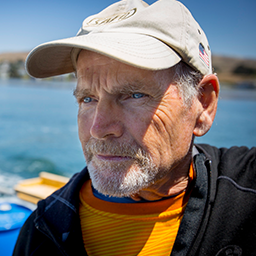
2017

Steven Sadro deploys the California Mountain Lake Network (CaMoLaN) in the Sierra Nevada to understand and predict the effects of climate change on mountain lakes.
Learn More
2018

Gwen Arnold receives UC Davis Chancellor’s Award for Excellence in Undergraduate Research Mentoring

2018

The Department of Environmental Science and Policy award 65 Environmental Policy Analysis and Planning and 94 Environmental Science and Management degrees
2018

Susan Harrison elected member of the National Academy of Sciences
Learn More
2018

Frances Moore receives Hellman Fellowship
Learn More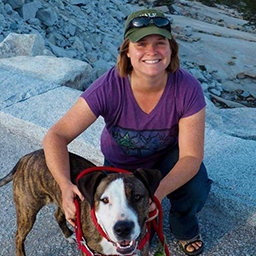
2018

Daniel Sperling receives Roy W. Crum Distinguished Service Award from the Transportation Research Board
Learn More
2018

Capital Public Radio features an interview with Gwen Arnold as she discusses her work and the debate over fracking in San Luis Obispo
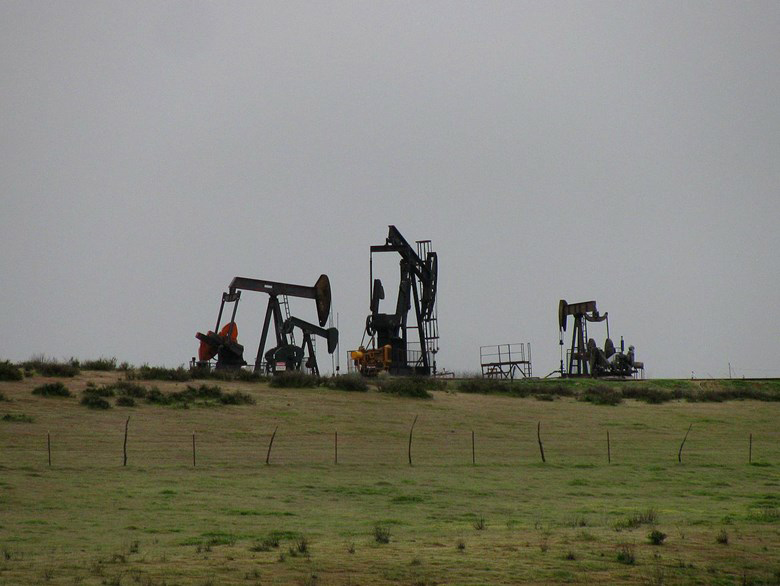 Learn More
Learn More
2018

Gwen Arnold, in an interview with Vice, discusses the EPA's website change to a more pro-fracking outlook
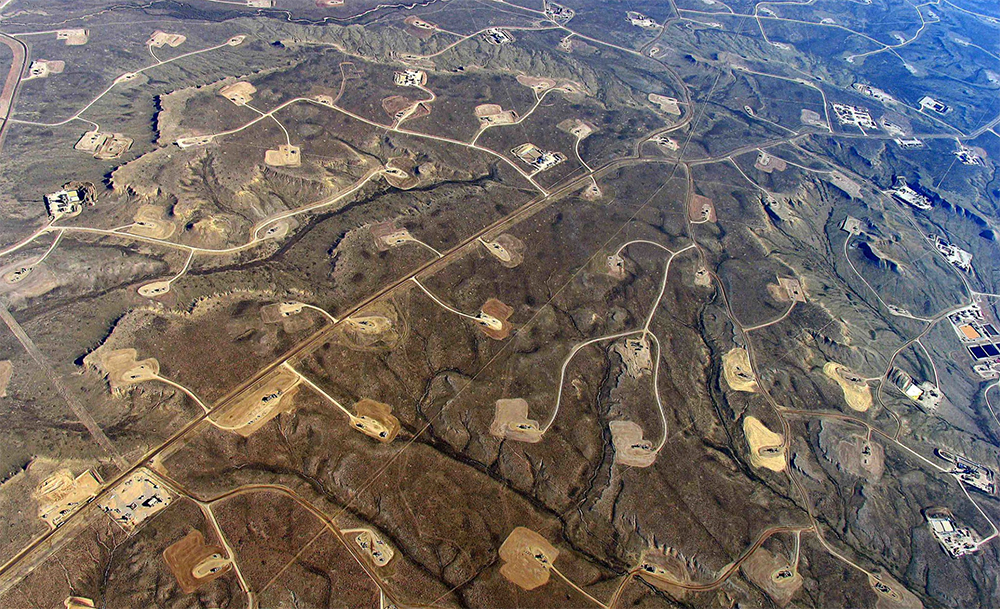 Learn More
Learn More
2019

The New York Times features the work of Frances Moore and colleagues
The article discusses the new normal of extreme weather events, and Moore’s work focused on how people contextualize extreme temperatures based on past weather experiences.
Learn More
2019

Frances Moore discusses agriculture and climate change on Resources Radio.
Learn More
2019

EOS features Marissa Baskett and a team of colleagues who found a novel framework and intervention to manage coral reefs

2019

Los Angeles Times features an op-ed by Susan Harrison whose work aims to better understand how California native plants are coping with climate change
Learn More
Let's go another 50 years
Help us continue to educate the next generation of environmental leaders and provide valuable research to some of the world’s most pressing problems.
Make a gift and make a lasting impact for the Department of Environmental Science and Policy for the next 50 years.